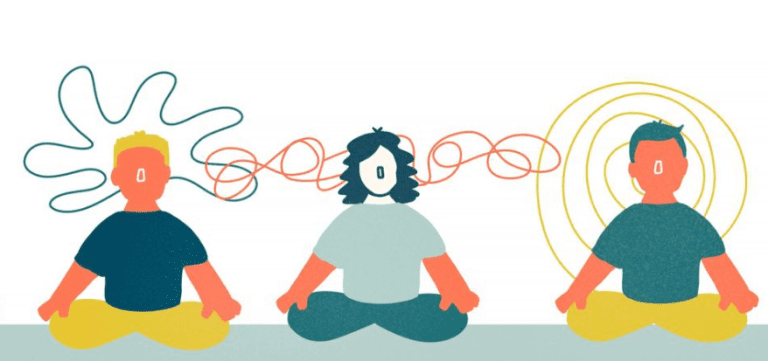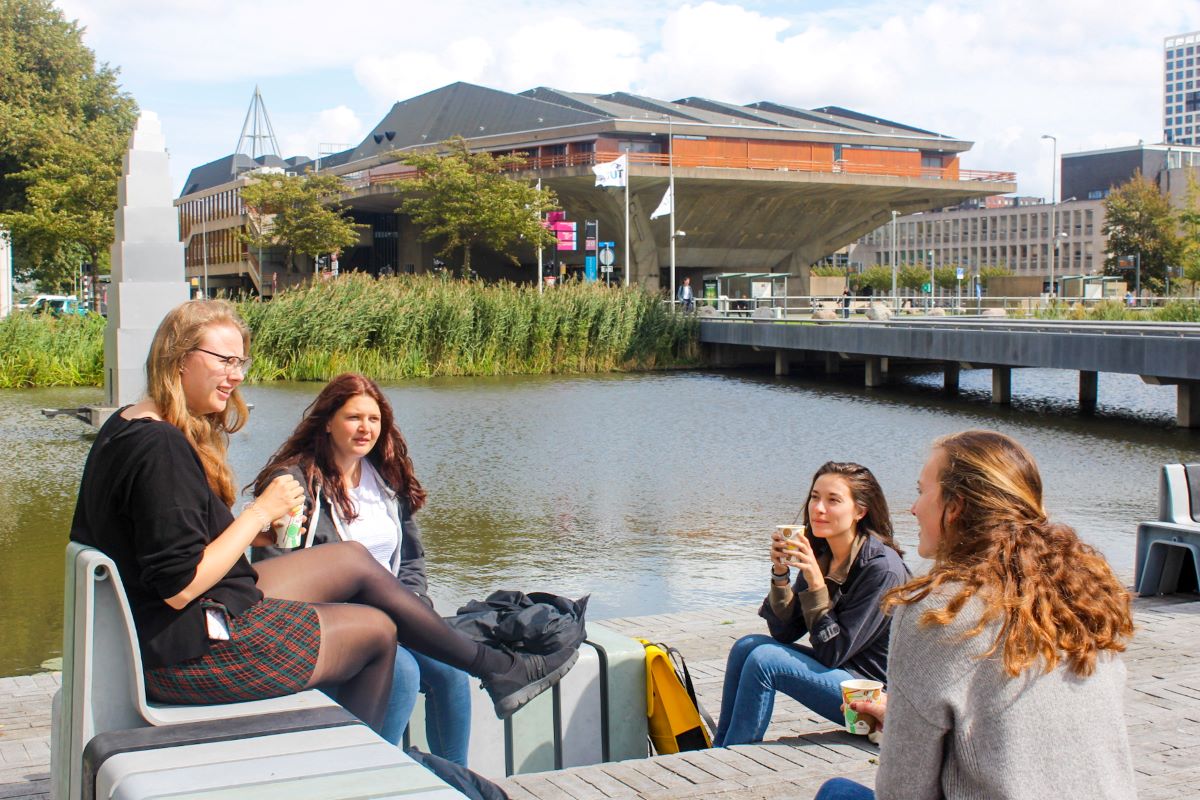Research into student well-being abound. TU Delft too is using questionnaires to gauge the ups and downs of its student body. What is done with all that data?
My Wellness Check will be conducted twice again in 2021. (Photo: Dalia Madi)
There is a big chance that you are one of the 6,000 students that filled in the My Wellness Check last year, a survey on student well-being that was held twice in 2020 and will again be run twice in 2021. The research was done by PhD Candidate Willem van der Maden and Assistant Professor Derek Lomas and was commissioned by the Study Climate Program. Van der Maden describes how the research was set up and what will be done with the findings.
How did you get involved in your capacity as a PhD Candidate?
“I am researching ways of measuring well-being for my PhD with the ultimate objective of optimising artificial intelligences systems. Well-being is such a complex concept that is influenced by so many factors. How on earth do you make it tangible? I was already working on developing low-threshold methods that people could use to keep track of their well-being. When the pandemic hit, I suggested to my supervisor, Lomas, that we should see how it really is going with people. Soon afterwards, TU Delft’s Study Climate Program came knocking at the door and asked if we could do this for all students and staff.”
Since the outbreak of the corona crisis, there has been one survey into student well-being after the other. What makes your research different?
“In my eyes, a lot of the methods used to measure well-being are not really specific to the corona crisis. To give you an example, what use is a life satisfaction score of six in such an acute situation as this one? It does not say much about how students feel right now and, more importantly, it does not help think through the action that TU Delft could take to improve the situation. With this in mind, we had all the data gathered analysied by TU Delft work groups. These comprised people like psychologists, academic counsellors, and deans. We also looked closely at what students who have a low life satisfaction score say. Some write about things like their office chair is uncomfortable. This not only generated overarching themes like the working environment and physical health, but were of immediate relevance to the people at TU Delft – those same psychologists, academic counsellors, and deans – who then knew what the students were saying.


Other research, such as that by Lieve Mark, also address students’ comments and possible solutions.
“That’s true, but our focus is on the most important themes at that very moment and possible action points. We call this the well-being feedback loop. At present, loneliness is having the greatest impact on how students feel. But this could be very different later on or when the crisis has passed; it could be something very different. Who knows, maybe it will be study stress that will then be the most important factor. Our report also regularly points to the initiatives that are taken to improve student well-being. We saw that students don’t always know where they can turn to and all the services that are there for them.
What struck you the most when you looked at the findings?
“A good working space seems to have a huge impact on how students feel, while at first glance, you would not think that it was related to well-being. Even more so, in our survey, the vast majority of the students with a low life satisfaction score stated that they did not have a dedicated work desk. Until recently I too lived in a student room. I ate, slept and worked in the same space and experienced first hand how heavy this can be in times of crisis. But that a good work space was the most important factor after loneliness and optimism was a surprise.”
Your 2020 findings are outlined in a report. What else will you do with them?
“I have already presented a much more detailed version to Vice Rector Magnificus Rob Mudde and the directors of education. They really listened to me. Apart from that, there are so many people from TU Delft in work groups working with the results that they too are well informed of the issues that students are struggling with. We also passed on many ideas to X, the Counselling and Career Services and student associations. A lot can be done through them.
Has any action been taken – or is being planned – as a result of your research?
One of these is the daily check-ins at X. We grab any survey there is to stress the importance of student well-being and we are involved behind the scenes in several initiatives. For example, we help student groups like 5voor12, the Student Council and VeRa by providing advice, support and budget. One of these initiatives is VeRa’s Trek aan de bel (sound the alarm) posters which call on students to seek help if they are feeling down. The best thing is that the Executive Board has pledged to continue assessing student well-being even after the corona crisis. All the recent research and happenings around the ups and downs of students have really had an impact, and everyone at TU Delft now knows that welfare is an essential subject for a university to consider.”
Do you need help?
- You can reach the TU Delft student psychologists at psychologen@tudelft.nl. There is an eight to 10 week waiting list, but there is also a daily walk-in hour.
- TU Delft’s psychologists have published some tips and tools for studying during the corona crisis. It includes a web page on recognising psychological problems.
- Motiv organises support groups and individual consultations. They also have a student support line: 015 2006060.
- You can also call Victim Support Netherlands: 0900-0101.
- Are you thinking about suicide? The 113 Suicide Prevention line can offer help in English (chat or phone anonymously).
- Are you worried about someone else? Contact ‘Meldpunt Bezorgd’ on 0900 040 040 5. Or visit their website (in Dutch) for more information. This service is meant for people living in Delft. Does the person you are worried live outside Delft? Then contact the general practitioner, 112 or 113 depending on the situation. In case of a crisis always contact 112.
- Since March TU Delft students who want to see new faces can join online peer-to-peer sessions hosted by X. The online meeting start every weekday at 18:00.
Do you have a question or comment about this article?
a.m.debruijn@tudelft.nl


Comments are closed.